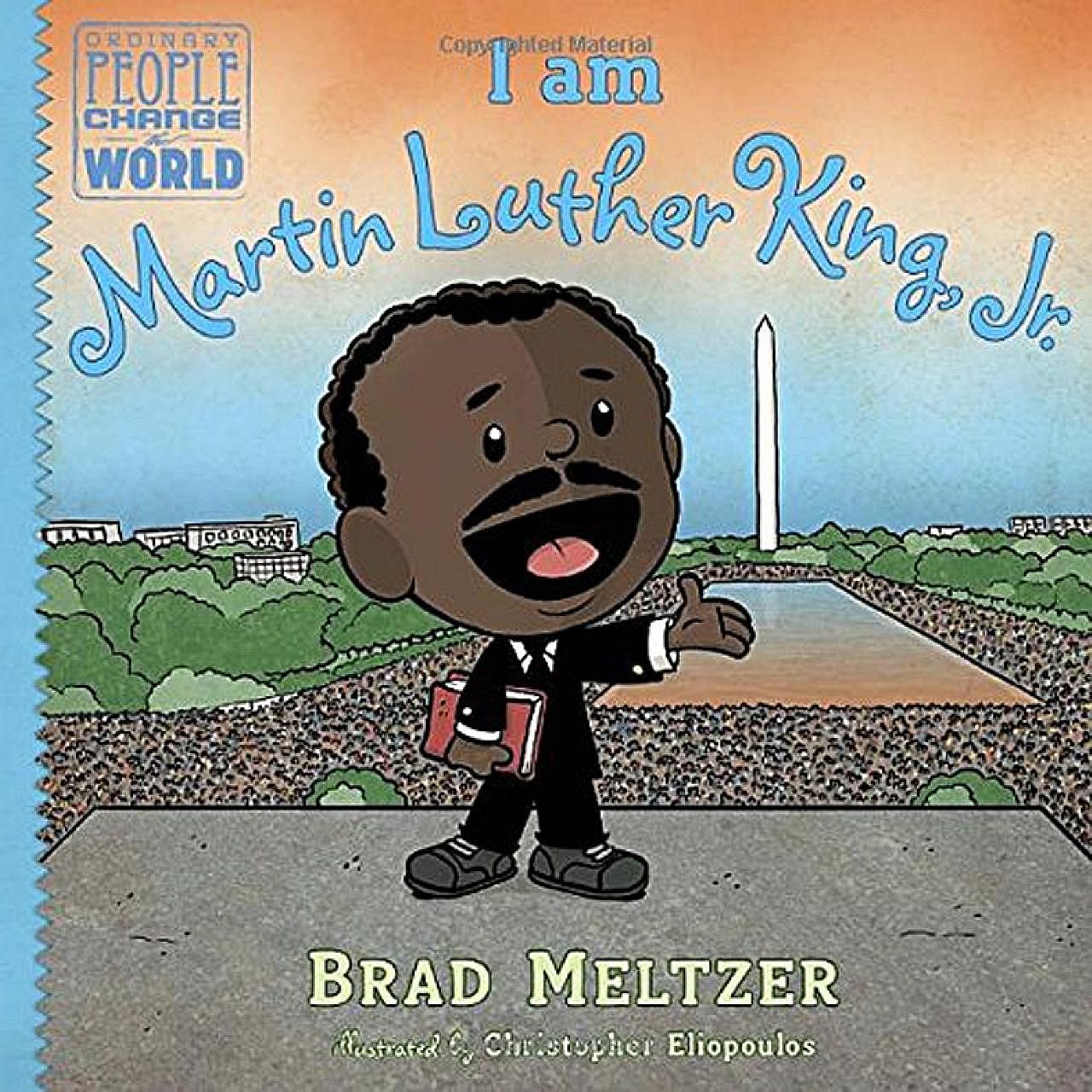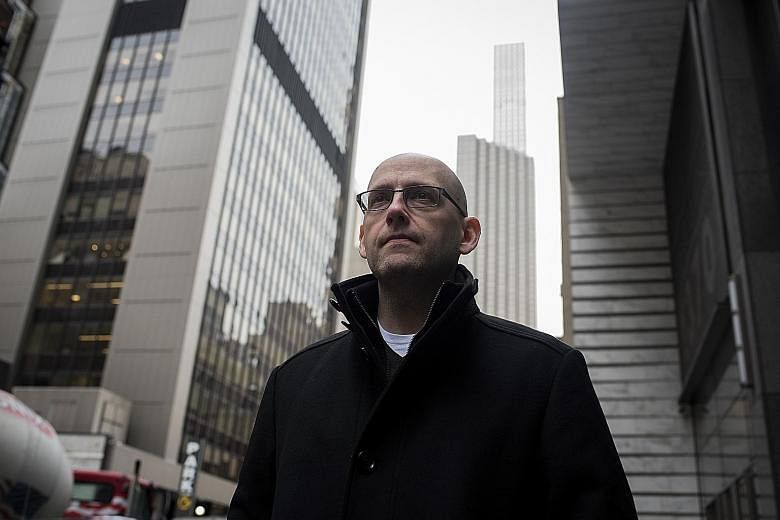NEW YORK • Now we know. Sesame Street is just around the corner from Ocean Avenue in Brooklyn, down one of the long blocks where the houses with the stoops are, not far from the tan-brick apartment building with the awning, the gas station and the carwash.
We know this because Brad Meltzer said so. Ocean Avenue in Sheepshead Bay is where Meltzer, a best-selling novelist whose thrillers usually have twists involving law or history or maybe classified documents, lived when he was a child - in the tan-brick building between Gravesend Neck Road and Avenue W. No wonder Ocean Avenue in Sheepshead Bay figured in his explanation of a sideline, a children's book that presents the creator of the Muppets, Jim Henson, as a hero.
"You couldn't get to P.S. 206" - his elementary school, about four blocks from the Ocean Avenue building - "without walking past what looked like the entire set of 'Sesame Street,'" he said. "Sesame Street was a mirror of my life. It had crazy characters who were just like my friends and family."
It left him longing, by the time he was a grown-up, "for a world where you can dream and hope and pretend".

It is a world he has tried to create in a series of children's books that he sees as antidotes for a society that has "confused fame and hero" and that lionises people who are "famous for being famous".
He does not mention any names, but he is no fan of reality television stars or how reality television differs from what he remembers watching when he was a child.
"Our kids are being fed garbage through their eyes," said Meltzer, 46. "When I was five, Jim Henson taught me you can use creativity to put good in the world.
"The magic of Jim Henson is not a funny voice or the ability to make a cute puppet. It's dreaming. It's pretending. It's that there's nothing wrong with being a do-gooder."
That is a word Meltzer is unapologetic about.
Turning out children's books is the latest plot twist in his life as a writer, a calling he credits to a ninth-grade teacher - "the first person who said to me, 'You can write'."
The publishing world discovered him in the mid-1990s, when he was that rarest of creatures, a law student who did not write like a lawyer.
He landed a book deal and a six-figure advance and, in 1997, Rob Weisbach Books published The Tenth Justice, about behind-the-scenes intrigue among the clerks at the Supreme Court.
"If I was a smart person, I should write more thrillers - they pay me far more" than children's books, he said. "But now I have kids."
"I watched my daughter go through her princess days looking at reality TV stars and thought, is this the best we have?" he continued. "I watched my son watch anyone who plays professional ball in the NBA or the major leagues and thought, is this the best we have? My daughter loves reality TV. That's her Sesame Street."
And that, he concluded, was not good enough. He decided to "fight back and show a little bit of a better world" by writing children's books about heroes.
"Heroes are never what we want; they are what we need," he said. "In the Depression, Flash Gordon - it was depressing. As World War II comes, Superman. It's not that he was the most entertaining, he was what we needed. It's why all these superhero movies have taken off. We still need someone to come save us."
He started with Heroes For My Son, which he worked on between thrillers. Then came a daughter, and Heroes For My Daughter.
Then he began the I Am series with I Am Abraham Lincoln and I Am Amelia Earhart, both published in 2014, before the world was struggling with fake news and alternative facts.
"The appeal of these books is these things really happened," he said, telling the story of a young reader whose father is a friend of his. The little girl reached the last page of I Am Rosa Parks and asked: "This is real?"
The I Am series, published by Dial Books for Young Readers, is written in the first person. Meltzer imagines the words of famous people, but does his research: I Am Martin Luther King, Jr mentions as a source US Representative John Lewis, the famed civil rights leader whom United States President Donald Trump criticised on Twitter after Mr Lewis said he did not consider Mr Trump a legitimate president.
"The goal is, these aren't stories of famous people, these are people on their good days," Meltzer said. "Rosa Parks stands up to a bully when she's 11 years old. Or Jim Henson, getting rejection after rejection."
Henson's rejections came from television stations in Washington, one of which eventually hired him anyway, when he said he knew puppetry. (He had never worked a puppet before, though he did go to the library to read up on it.)
Meltzer knows about rejection after rejection - 24 publishers turned down his first novel. He put it aside and began what became The Tenth Justice.
He has now written more than 20 books, all bestsellers, but something happened last month that had never happened before: One sold so many copies, the publisher ran out.
That was I Am Martin Luther King, Jr. With I Am Rosa Parks, it has led the I Am series to double-digit percentage increases in sales since the week of the presidential election. The series went on to sell more than 10,000 books last month, double the sales of December 2015.
Along the way, the King book became the top-seller in the series, displacing I Am Abraham Lincoln.
"If you have heroes selling like that," Meltzer said, "it means America has a tolerance problem and we need tolerance.
"It's not us and them, it's we. We've played this dangerous game called us versus them for the last year and a half. It's time to get back to we."
NYTIMES

